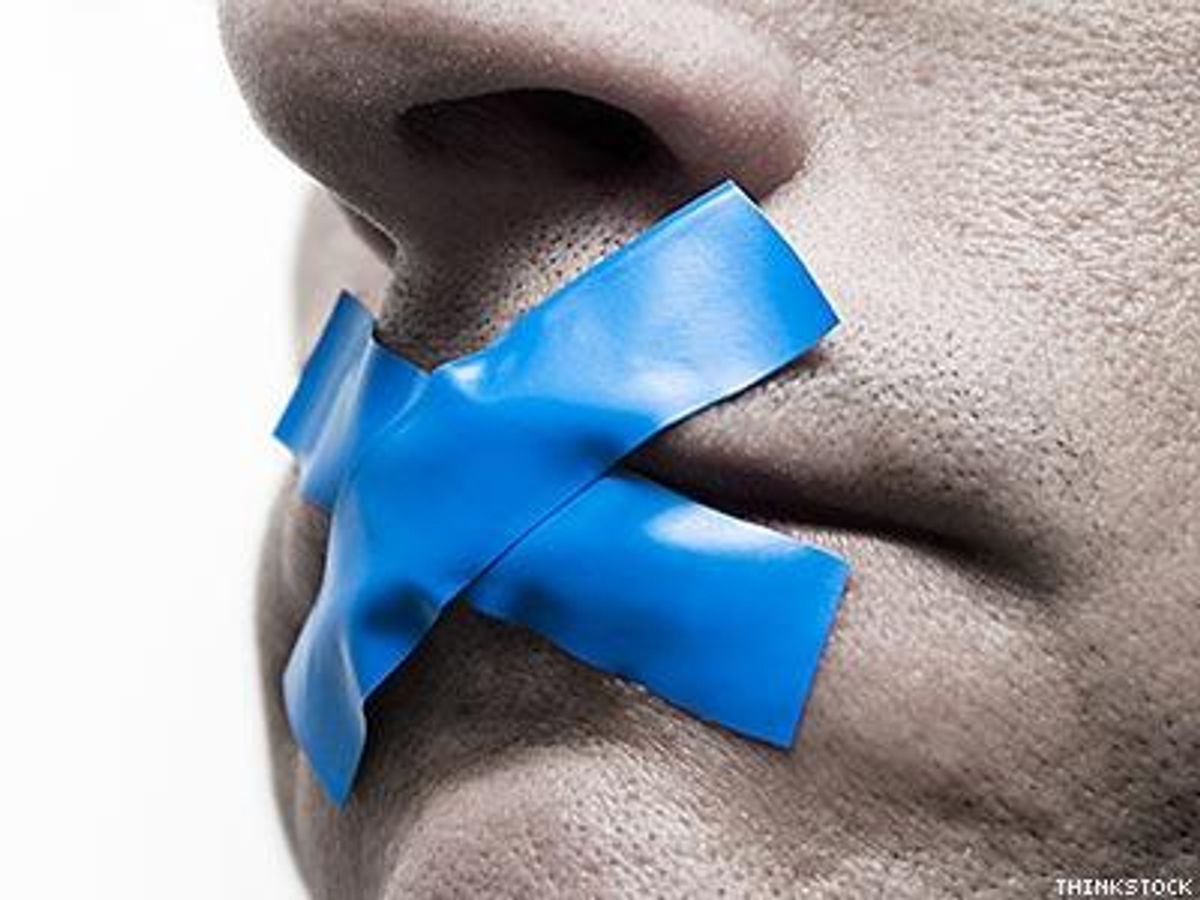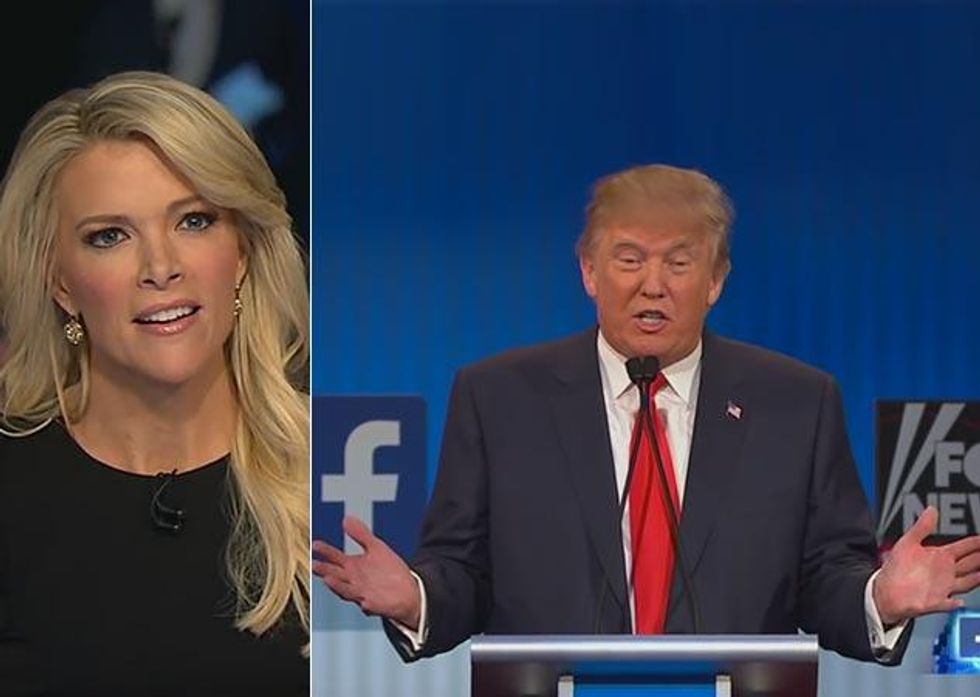
Those who argue that you can't say anything anymore really just want to preserve the status quo.
August 19 2015 4:30 AM EST
November 17 2015 5:28 AM EST
By continuing to use our site, you agree to our Private Policy and Terms of Use.

The Atlantic recently published an article titled "That's Not Funny: Today's College Students Can't Take a Joke," by Caitlin Flanagan. It is very similar in tone to recent essays that have appeared in Salon and New York magazine, all of which argue that the recent rise in "political correctness" is destroying comedy, college campuses, liberal politics, and perhaps civilization more generally.
Flanagan's article opens with three comedians who are about to perform at the National Association for Campus Activities. One of the comics laments that he wouldn't be able to do his routine about "giving his girlfriend herpes and banging his grandma" at this event because if he did, he surely wouldn't be booked for any lucrative college events this upcoming year. You know, because of "political correctness."
This particular example struck me for very personal reasons. In 2004, I was a slam poet, and all of my spoken word pieces at the time were centered on my transgender identity. I submitted my work to a similar campus activities conference (not NACA) and was thrilled when organizers offered me a spot on the main showcase stage. But when certain colleges learned about this, they threatened to boycott the conference. You know, because I'm transgender. The conference organizers felt that they needed to appease these schools -- they were apologetic and offered to fit me in elsewhere in their conference. Just so long as I wasn't speaking about transgender issues and experiences in front of the main showcase audience.
Of course, things have changed dramatically in the last 11 years. Nowadays I am regularly invited to colleges to speak about transgender issues and experiences (albeit as an author, not a slam poet). And comedians who make crass jokes about transgender people (who were ubiquitous in 2004) are the ones likely to be denied college gigs.
From my vantage point, it seems quite clear that these two developments are necessarily linked: The more that audiences come to understand and respect transgender people, the less likely that they will find amusement in remarks that mock or disrespect our identities and perspectives.
This is why I find the latest rash of alarmist "political correctness run amok" articles to be quite disingenuous. They express consternation about "word policing" and "censorship" without ever acknowledging that we -- as a society, or within certain subcultures or settings -- are always making judgments about what language and ideas (not to mention people) are acceptable and which ones are deemed unacceptable.
Once we acknowledge this, it becomes clear that "political correctness" is an inherently biased meme. No one would ever argue that jokes made at the expense of transgender people constitute "political correctness" -- even though they clearly express a political viewpoint, one that has historically dominated in our culture. But if I were to complain about that joke -- which, lest we not forget, is also an expression of free speech -- plenty of people would accuse me (and any supporters I may have) of "political correctness" and "censorship."
In other words, "political correctness" is merely a pejorative wielded by those who wish to protect the status quo. But of course, the status quo is always evolving. The proverbial line in the sand that determines which words or ideas are acceptable within civil discourse and which ones are deemed to be beyond the pale is constantly shifting over time.
In her article, Flanagan cites Jerry Seinfeld and Chris Rock as comedians who feel college audiences have become too "politically correct." Similar sentiments were expressed by Bill Maher when Flanagan appeared on his show Real Time to discuss her article (where they of course shared a laugh about her first name being Caitlin in a post-Caitlyn Jenner world). While I have appreciated some aspects of all of these comedians' past work, they do strike me as the epitome of the status quo -- at least with regards to comedy -- all having risen to success in the '80s and '90s. But comedy is always evolving and audience preferences often change.
I regularly go to comedy shows -- not at college campuses or the larger venues that host established comedians, but at local bars in Oakland and San Francisco. I can assure you that comedy is still thriving. Some of the comics do material that is subversive and/or sexual in nature, and they often get plenty of laughs. It's just that the jokes that used to kill when I was a kid -- making fun of how Asians drive, speaking in a stereotypical gay voice with an exaggerated lisp, quips about how some female celebrity is a slut -- won't garner many laughs. It's not "political correctness"; it's just that many people no longer find those jokes funny. Comedy that "punches down" is simply going out of vogue.
What I find most frustrating about all these articles critiquing "political correctness" is that they obscure more relevant conversations that we should be having and where we may find common ground. Even though I am a trans activist (which some might view as the epitome of "political correctness"), I have written extensively about how policing language can sometimes make spaces less safe, not more. I have chronicled some of the problems associated with identity politics and attempts to simply ban language that some people find demeaning. Some of the anti-PC articles I've read make valid complaints about the mob mentality that exists on social media, with coordinated attempts to bully or bring people down -- as someone who is regularly harassed on those platforms for being a trans activist, I would love to engage in thoughtful conversations about this phenomenon. But when people who have long been a part of the status quo insist on framing these problems in terms of the false construct of "political correctness," they are writing my concerns and those of other groups who have historically been shut out of mainstream culture completely out of the picture.

Viral post saying Republicans 'have two daddies now' has MAGA hot and bothered